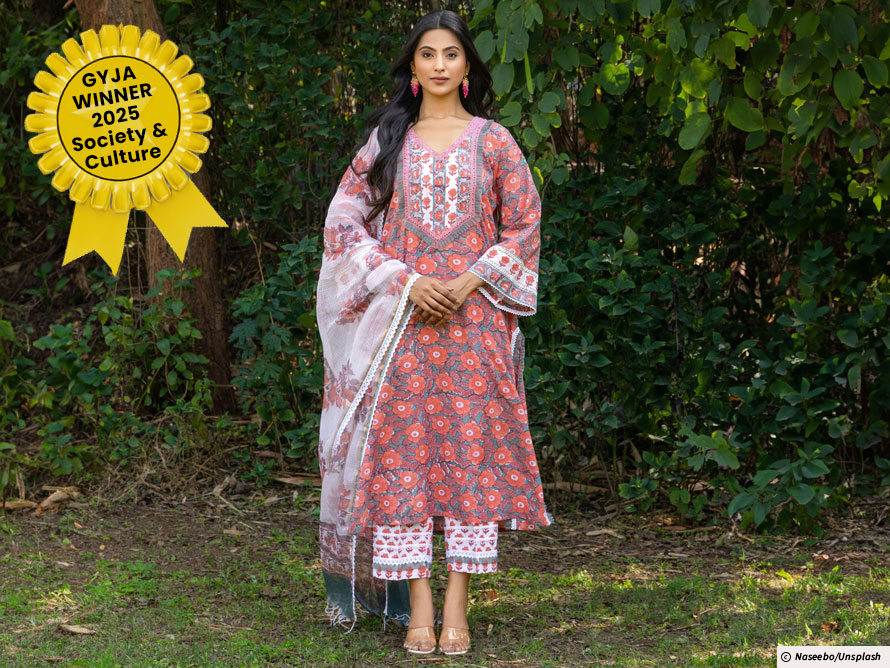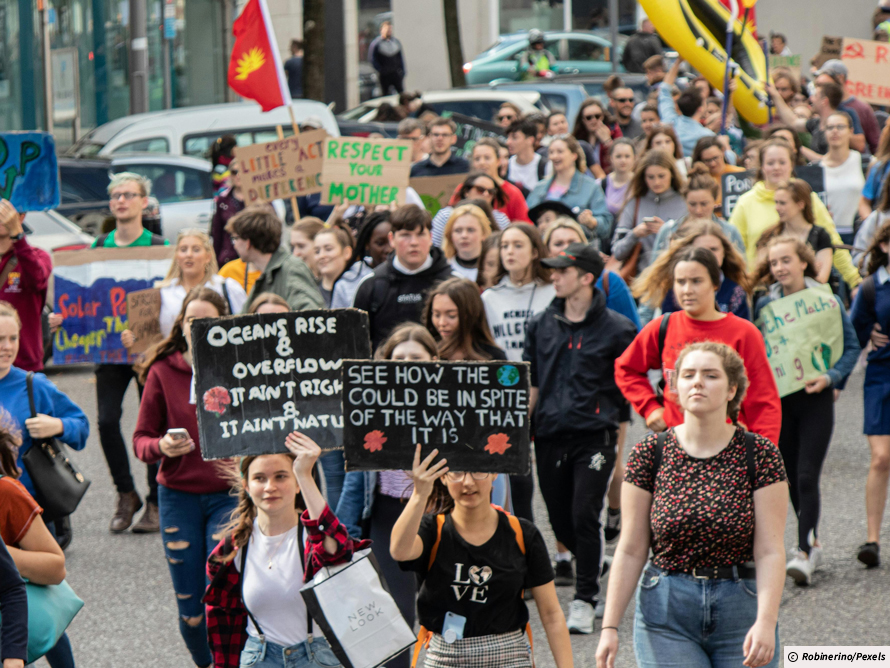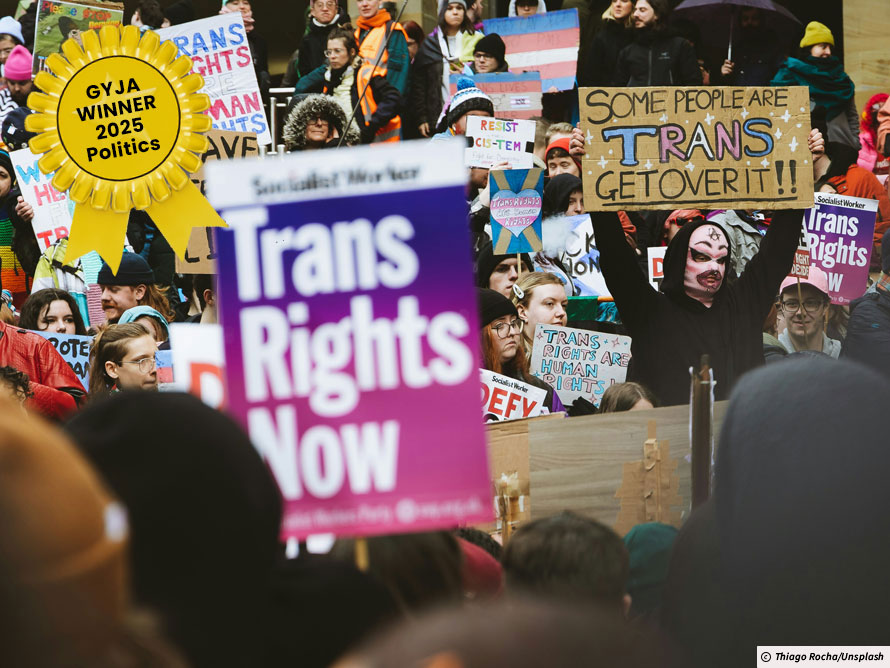Questioning a woman’s lifestyle and her choices reinforces the belief that women must be regulated, corrected and guided by someone else’s moral compass, argues Nayonika Sen, 14, from Shiv Nadar School, Noida, India.
Can’t smile too loud. Can’t dress too loud. Can’t speak too loudly. Can’t even win loudly.
Why is the world so afraid of loud women, of women confident in their own skin?
I was eight when I was told I had to change into full pants because guests were coming over; 10 when I was told to start covering up, that my body was something I had to hide. When I was 11, I learned that I couldn’t let the men in my household know when I was on my period.
Every single day, we are taught to be ashamed of periods, handed pads in secret, and told to stay quiet. But never taught about consent. Never told how our reproductive system works. And if we raise our voice and question them? We are told we are too modern. Too bold. Too much.
But here is what we are not told: while they teach us about shame, they are passing laws about our bodies in the pretext of culture and tradition. When Roe v WadeA ruling of the Supreme Court in 1973 that determined that the right to have an abortion up to the third trimester was constitutionally protected and so could not be limited by any state. was overturned in the United States in 2022, it served as a stark reminder of how even in one of the world’s most developed countries, the power to decide is often given not to the individuals most affected, but to institutions driven by patriarchalA society in which adult men have a monopoly on power. In these societies, men tend to hold all political positions, and women and children are also expected to obey the men in their families., political and ideological biasesBeliefs that systematically and unfairly distort a person’s decisions, in favour or against one group or another. .
Historically, women’s bodies have been the subject of much discussion and control, with people constantly viewing them through the lens of morality and social control. Every aspect of a woman’s life, from the way she dresses to the way she walks, is judged based on societal traditions. Her worth, reduced to her chastityAbstaining from sexual relationships. and how well she performs politeness.
I am 14. I cannot vote; I cannot even go to the doctor’s alone. But today, if I lived in some parts of the US, the law would expect me to carry a pregnancy to term. Even if it was the result of an assault. Even if it could destroy me.
And I cannot help but stop and wonder the same thing as many before me have: why is it that such a basic right — the right to decide what happens with our bodies — is the first right taken away from women? Why do others, predominantly men, get to decide for us?
The lack of representation when it comes to decision-making spaces is not coincidental, but a rather deliberate outcome of a social system designed to marginaliseTreating a person, group or idea as if they are unimportant. females. This imbalance of power is particularly stark when juxtaposednwith how little men are held accountable regarding issues of reproduction.
It is very rare to see public conversations and opinions about male accountability in unintended pregnancies or parental duties. This asymmetry underlines how social stigmasA mark of shame or disgrace that sets a person apart from others. In the 16th Century, it referred to a literal mark branded into the skin. around abortionThe deliberate ending of a pregnancy. are not just about moral values, but a system created to reinforce gender hierarchy.
Women who choose to terminate pregnancies are often painted as morally bankrupt. Such type-casting of women not only dehumanises them but is often devoid of societal empathy and support.
Generations have passed and there has yet to be any significant difference in the way women are treated in society. The message is that even now, our freedom remains fragile.
Our bodies are still not fully ours. And if we don’t speak up, someone else will keep speaking for us. So it is time we asked the real question: is this really culture, or just control disguised as tradition? Because when “tradition” decides how we talk, how we dress, and how we act, it stops being tradition. It becomes a cage.
And we were never meant to be locked in.
Interested in submitting your own Student Voices article or video? Find out more here.
Keywords
Roe v Wade – A ruling of the Supreme Court in 1973 that determined that the right to have an abortion up to the third trimester was constitutionally protected and so could not be limited by any state.
Patriarchal – A society in which adult men have a monopoly on power. In these societies, men tend to hold all political positions, and women and children are also expected to obey the men in their families.
Biases – Beliefs that systematically and unfairly distort a person’s decisions, in favour or against one group or another.
Chastity – Abstaining from sexual relationships.
Marginalise – Treating a person, group or idea as if they are unimportant.
Stigmas – A mark of shame or disgrace that sets a person apart from others. In the 16th Century, it referred to a literal mark branded into the skin.
Abortion – The deliberate ending of a pregnancy.
Cite
While every effort has been made to follow citation style rules, there may be some discrepancies. Please refer to the appropriate style manual or other sources if you have any questions.














